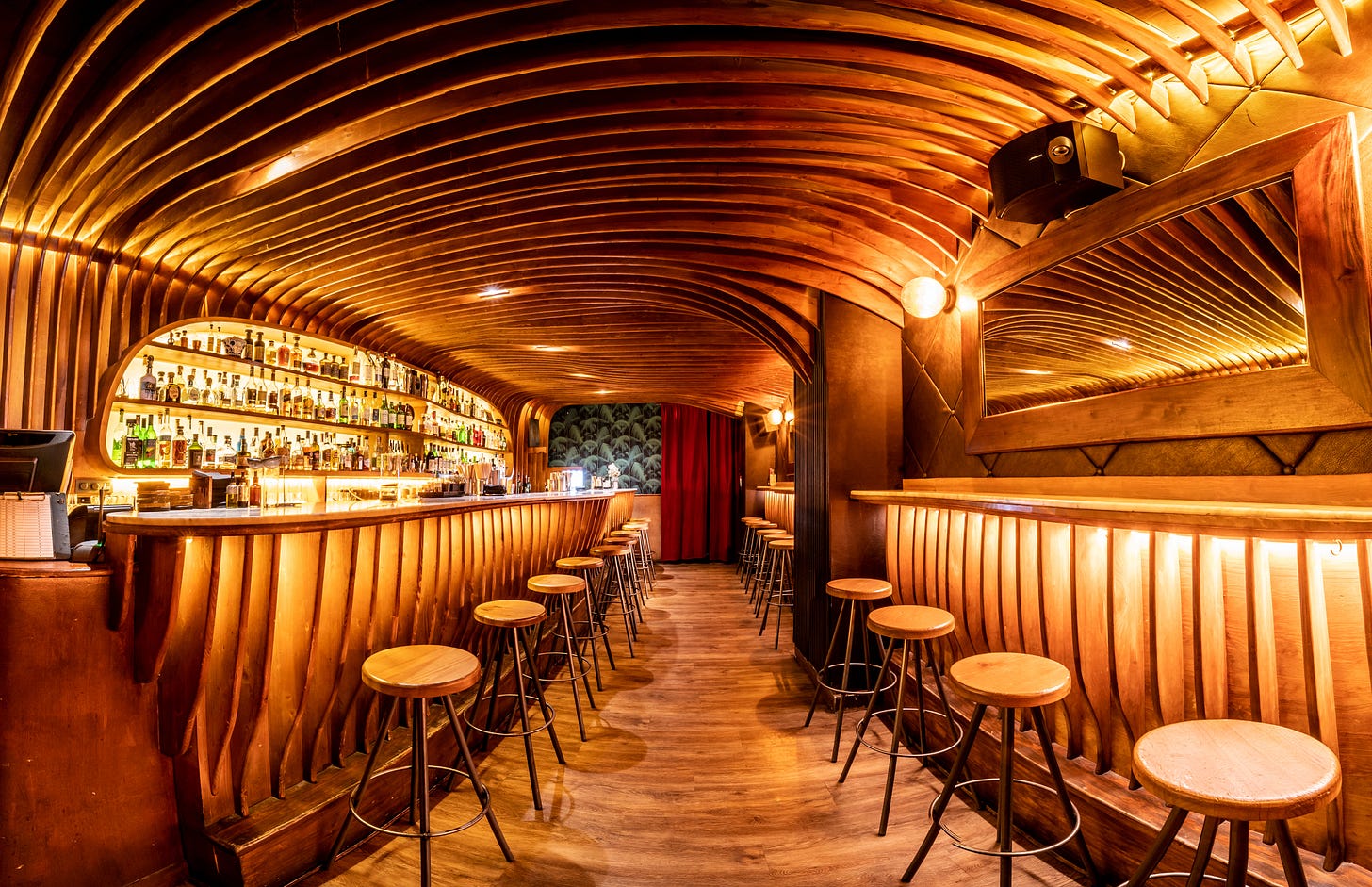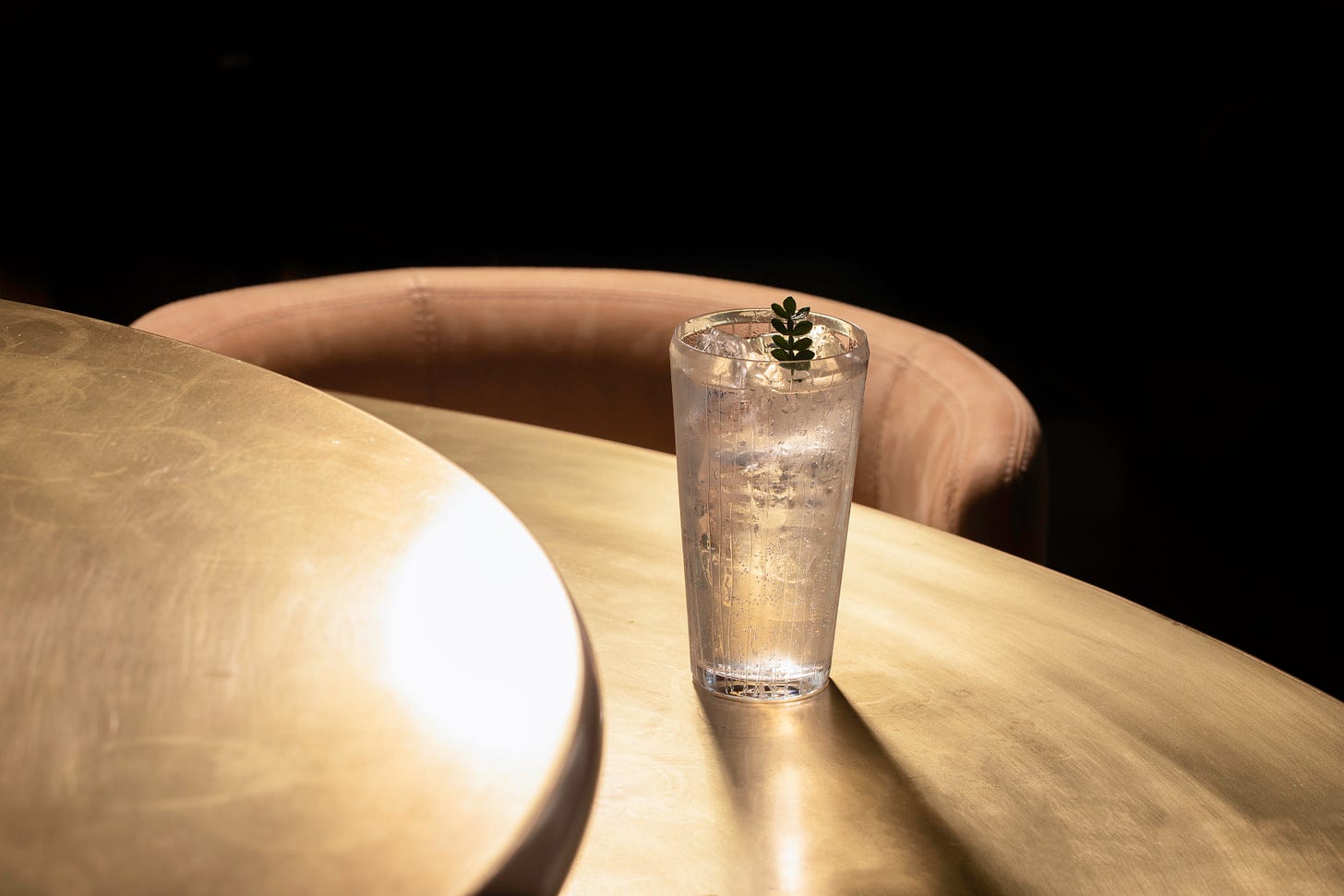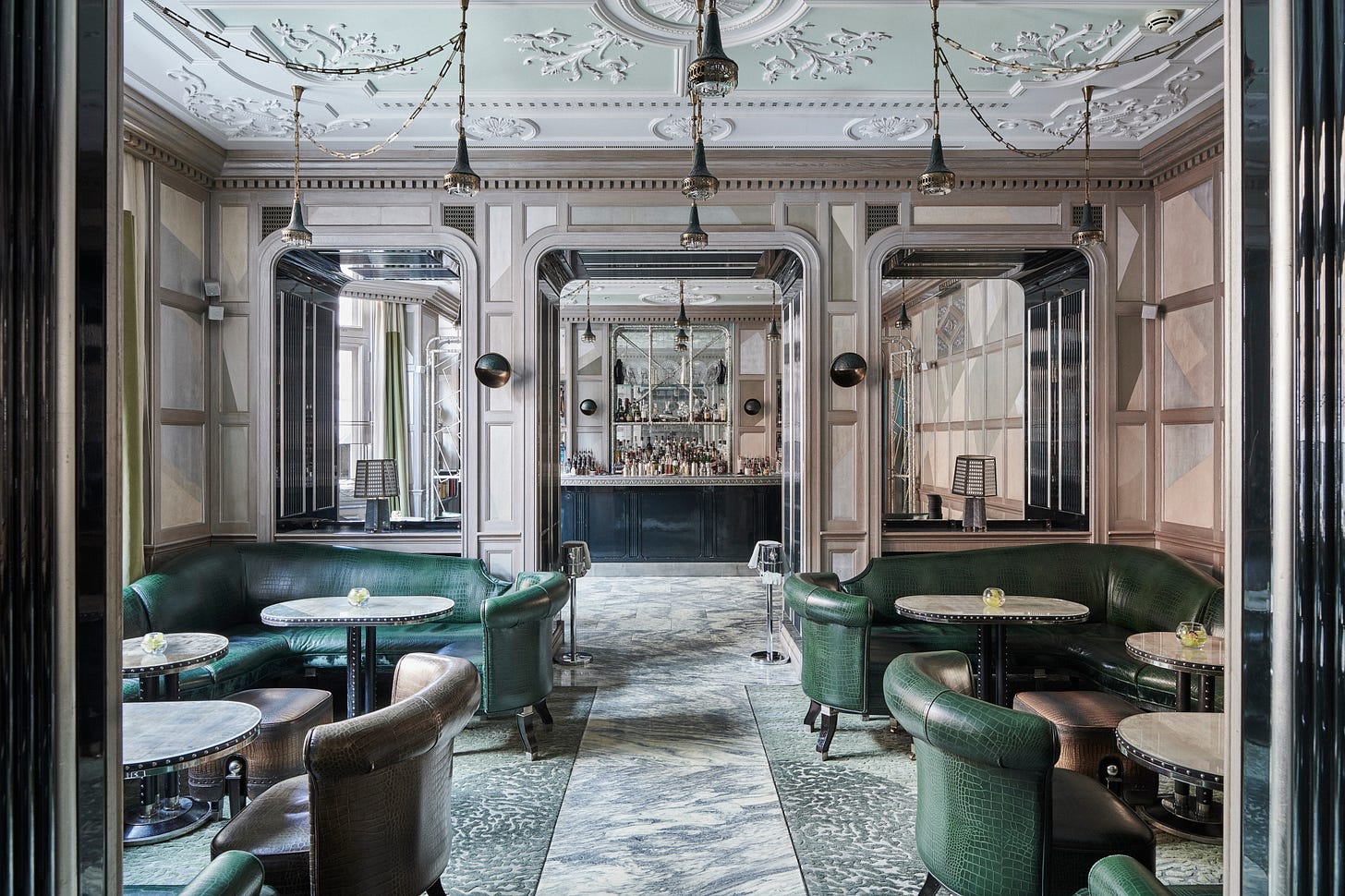What Does It Mean to Be One of the World’s Best Bars?
In my first "Cocktail Culture" newsletter, one of the four sections featured on "The Tipsy Traveler," I share my expert take on what it means to be one of the world's best bars.
Happy Friday, tipsy travelers. This is my first Cocktail Culture newsletter — one of the four sections featured on The Tipsy Traveler. This section includes spirited deep dives into a range of cocktail and bar industry-related subjects, including: "Sitting at the Bar," a series that features exclusive bartender interviews and profiles; bartending techniques; cocktail and bar trends; explainers; opinions, and so on. If you're an inquisitive imbiber, or bartender, Cocktail Culture won't disappoint.
On Tuesday, October 4th, I attended the World’s 50 Best Bars awards ceremony in Barcelona. This year, a new bar was crowned “best bar in the world”; and for the first time in the list’s fourteen-year history, the top bar isn’t based in New York or London. Coincidentally, or not, this year’s winner is the Barcelona-based Paradiso — an atmospheric, hidden cocktail bar known for its playful and experimental approach to cocktails and hospitality. Considering that Paradiso was ranked number three on last year’s list, and ticked many of the boxes for what I think the judges look for in the world’s best bars, the win wasn’t much of a surprise to me; in fact, they were the bar I put my money on to win (figuratively speaking).
Having visited many of the bars on the world’s best list over the last few years, I have a decent gauge on which bars are “50 Best” material, versus ones that just don’t have that winning formula (I’ll explain more about this “formula” shortly). Firstly, it’s worth mentioning that just because a bar is on the list, doesn’t mean that I particularly like drinking there. In fact, some of the bars on the list—which includes one-hundred bars if you include the 51-100 list—are just alright, in my opinion. Since all lists are subjective to a certain degree, there will always be some questionable inclusions. Luckily, with 50 Best’s robust and diverse surveying process, which includes 650 expert judges from around the world, those questionable inclusions are limited. To be honest, I thought this year’s list of the 50 Best bars was on point, aside from a couple surprising snubs.
So, getting to the point: what does it mean to be one of the world’s best bars? While there is actual judging criteria all of the judges adhere to, I’ll share my own as it’s probably the most detailed criteria you’ll find anywhere. Having also worked in cocktail bars, I make conclusions based on both the average consumer experience, and my own understanding of bartending, operations, service and hospitality. In order to differentiate the average cocktail bar from one that’s considered one of “the best,” I think both perspectives are valuable.
Whenever I visit a new bar and evaluate it critically for work, I make notes in six separate categories: the drinks, the vibe, the service and operations, the hospitality, the talent, and the brand. If you look at the 50 Best Bars, the majority of them are outstanding in each of these areas, albeit each in their own way.
In addition to those six categories, I also have strong personal beliefs that the best bars should also be striving towards financial and social sustainability, turning a profit after a few years and compensating their employees properly. If there’s one thing that frustrates me beyond belief, it’s egotistical bar owners who open vanity projects—not bars—with the sole aim of winning awards instead of building viable businesses. While those spaces may be beautiful and serve exceptional cocktails, they’re often soulless. And I, for one, can sniff out that thirsty bullshit in a heartbeat. Those places don’t deserve to be one of “the world’s best bars.”
My criteria for judging bars should serve as a way for bar owners and bartenders to keep themselves honest and optimize their businesses accordingly, if they feel there’s need for improvement. And, for enthusiastic imbibers, the following criteria should give you a greater understanding of the things to look for when evaluating bars for your own purposes — even if it’s only for making recommendations to friends.
With that, here are some questions that I pose to myself when I’m actively trying to conclude the overall quality of a given cocktail bar.
The Brand
Note: branding is also evaluated outside of the bar guest experience.
What is this bar all about? Is there a concept? Is the concept clear in the design, drinks, menu, staff communication?
Does this bar promote its brand well (via social media, global pop-ups, PR, etc.)? — this has become a core pillar for many bars that make the 50 Best list.
Does the brand/bar have other sources of revenue beyond the bar? (Some of the best bar businesses sell more than just food and drinks these days.)
Has the brand impacted the global or regional bar scene in some way? (e.g. Moe Aljaff’s Two Schmucks paving the way for other “five-star dive bars”)
Is it a successful business, or does it have the potential for success?
Does the bar contribute to its local and national community in some positive way?
The Drinks
Do they fit the concept and make sense in the space?
Are they balanced, well-executed and enjoyable?
Are the drinks served in the appropriate glassware, with quality ice? Is the glassware particularly nice, or an extension of the brand in some way (e.g. custom glasses or earthenware)?
If they are avant garde, are they noteworthy and original? Or is it a case of style over substance?
Are any advanced culinary techniques used necessary? If so, how? (e.g. Using a raspberry distillate made in-house instead of using a raspberry eau de vie — I promise a brand’s will be better.)
Even if they are high-concept cocktails, can the average guest still find them as enjoyable as the bartender? (e.g. Remy Savage’s Pastel at A Bar With Shapes for a Name — crushable and familiar for all drinkers, but uses some clever techniques.)
Are the drinks on trend?
Are they priced appropriately? (Factor in the cost of goods, the city/town/country, the physical space the bar rents, and the labor to create ingredients.)
Are the menu cocktails consistent? Same with the classics?
Would I come back to drink them again?
The Vibe
Is the space aesthetically pleasing, and comfortable?
Is the layout and design functional and set-up for success? (e.g. Making sure bar stools are comfortable and the correct height relative to the bar top; same thing applies for bar seats and tables, etc.)
Does the music and lighting match the concept and space? (The vibe at most bars pretty much comes down to lighting and music, if I’m being honest.)
Do the drinks make sense with the furnishings? (e.g. tiki drinks served on minimalist-designed tables doesn’t typically match)
Is the bar enjoyable when it’s both busy, and when it’s quieter?
Does the service style and hospitality create a special ambiance?
Does it align with the bar concept?
Service and Operations
Is there a clear and consistent order of service?
Is service timely and attentive for all guests at the bar? (As press, I realize that I often get extra attention at bars, but I also take note of when and how other tables get served.)
Is there something unique about the style of service? Is there a specific etiquette? (e.g. Drinks put in freezer while you’re in the toilet, swapping a room temperature glass with a freshly chilled one mid-cocktail if you’re taking longer to finish, etc.)
How does the bar staff react to mistakes? (I’ve had drinks spilled on me, it happens; but how the staff responds is worth noting.)
Does the bar function smoothly? (This can be a tricky one, but this is often a mix of POS placement, bar layout, etc.)
Is the bar properly stocked and prepared for service? (There’s nothing worse than trying to order off of a menu where multiple cocktails aren’t available because ingredients weren’t prepped. This has happened to me at a bar on the 50 Best list.)
Hospitality
Is the hospitality warm and genuine? Do you enjoy interacting with the staff?
How and when are you greeted when you enter the bar? (And, if you aren’t greeted in a relatively timely fashion, that’s also worth noting.)
Is the hospitality an extension of the bar in some way?
Is the bar staff accommodating within reason?
Does the bar have that X-factor hospitality? (This is a gut feeling, oftentimes.)
The Talent
Does the bar have a noteworthy figurehead who actually has a consistent presence at the bar? (Since awards are subjective to a certain degree, having a well-known and respected personality can go a long way. Sometimes they aren’t the best bartenders, but they bring business into the space and have valuable relationships in the industry.)
Are the bartenders technically-sound? (Building rounds properly, semi-clean, hitting their marks when jiggering, etc.)
Are the bartenders knowledgable on the drinks being served, classic cocktails and spirits in general?
Are they good humans? (It helps.)
Do the bartenders have a good presence on social media and in the greater bar community? (Not essential by any means, but it can help build the brand and reach judges and consumers from other markets.)
Concluding thoughts:
As you can see, there are many considerations to be had when it comes to judging which cocktail bars are “the best” in the world. Evaluating a bar requires a mix of objectivity and subjectivity, which is why having a vast and diverse panel of judges is vital for curating a list that is truly representative of the bar industry’s best places to drink.
I probably left out some valuable points as judging a bar is more complex than most people—even bartenders and bar owners—realize, but all of the points I shared above contribute to a bar being worthy of “50 Best” status.
Have thoughts? Questions? Need a consultation? You know where to find me.




